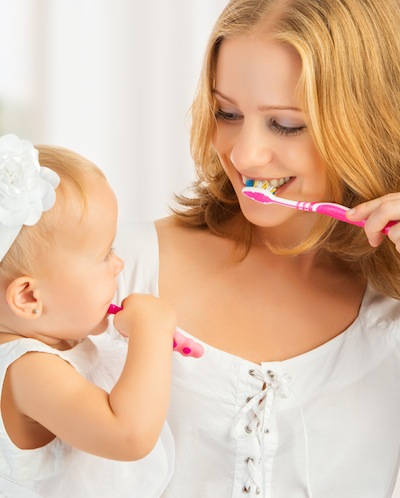Oral Hygiene Habits for Children

Even before your child's first tooth appears, you can and should begin an oral hygiene routine. Use a cloth to wipe down your baby's face and gums after every feeding. Once the first tooth appears, use a soft bristled brush to clean the tooth after every meal but do not use toothpaste as children tend to swallow most of it which can be harmful. If you are having difficulty brushing your child's teeth, you may want to try having your child lie down with their head in your lap, or have them stand in front of you with their back leaning against your body while holding a mirror so that both you and your child can see what you are doing.
Children require smaller brushes than adults and flossing should begin only when the teeth begin to touch each other. You child will likely not have the manual dexterity to brush and floss their own teeth until the age of 8 or 10. Establishing a good routine from the very beginning will help your child to get into a habit of oral hygiene.
Once your child begins brushing their own teeth, you may want to use a timer to ensure they are brushing for long enough as well as providing rewards such as stickers for regular brushing and flossing. The best way to get your child to adopt good oral hygiene habits is to model them yourself. If you and your child brush your teeth together ever morning and evening the practice is more likely to be kept up than if you expect your child to form the habit all on their own.
Comments
Post a Comment